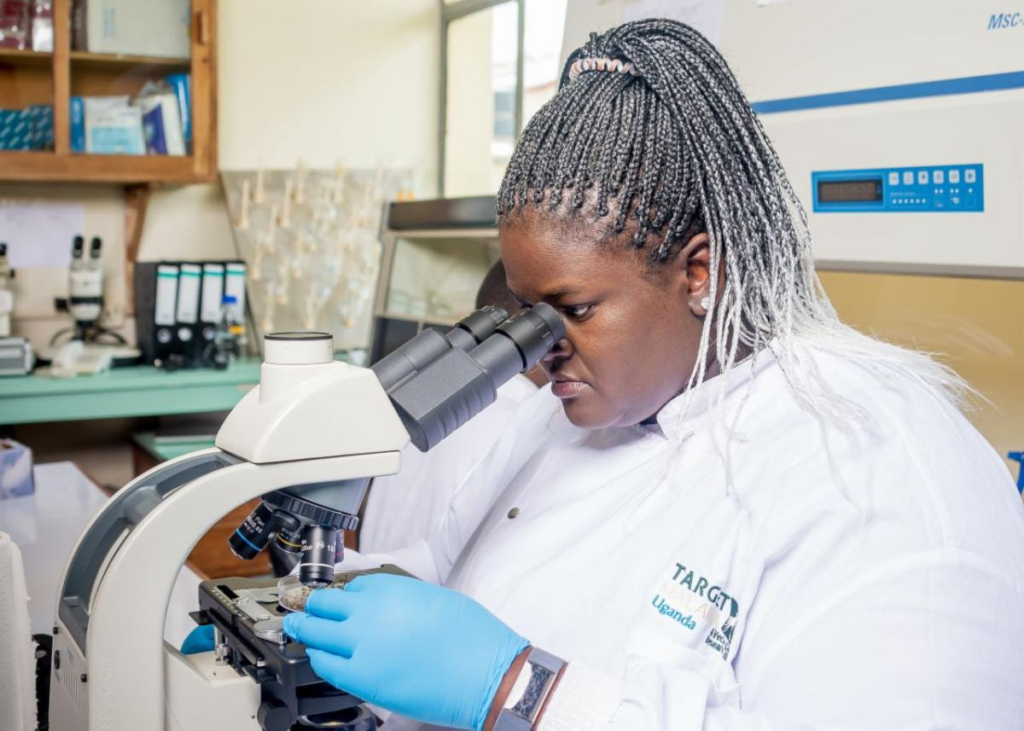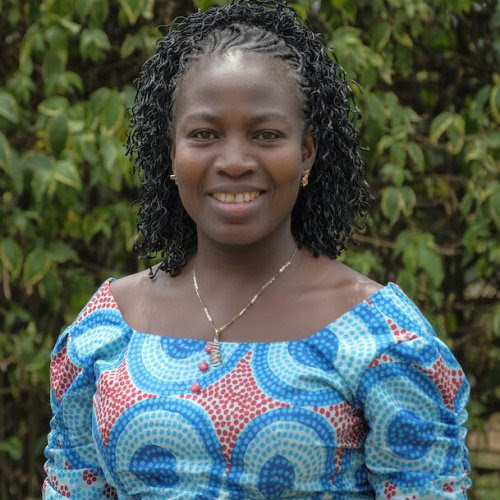KAMPALA, Uganda, 26 March 2024 -/African Media Agency(AMA)/- Despite the challenges posed by the persistent global threat of malaria, Target Malaria remains steadfast in its commitment to harnessing scientific innovation to combat the deadly disease, and highlight the invaluable contributions of African women in science in the fight to end Malaria in Africa.
The need to encourage more young African girls to pursue careers in science cannot be overstated. A UNESCO report reveals that only 35% of STEM students in higher education globally are women.
Join our WhatsApp Channel
Dr. Lea Pare Toe, Stakeholder Engagement Lead for Target Malaria Burkina Faso, underscores the urgency for the inclusion of more women in science. “Research shows that women are typically given smaller research grants, face shorter and less well-paid careers, and are underrepresented in high-profile journals and leadership positions,” she says. She highlights the challenges facing young African girls too, from entrenched gender stereotypes to a lack of role models in. “The fields of science and research need more women, and this is particularly true in Africa, where there is so much young talent.”
Target Malaria is pioneering the use of gene drive, a natural genetic mechanism, to spread a genetic modification in malaria mosquitoes that biases the rate of inheritance and affects their ability to reproduce. This innovative approach holds the promise of being a sustainable and cost-effective method to reduce the population of malaria mosquitoes and ultimately halt malaria transmission. Target Malaria also ensures that African voices and expertise play a central role in the development and evaluation of these technologies.
“You cannot lead community driven research in a specific scientific expertise and country if you do not have a level of knowledge in that field. My role is first and foremost community-driven, involving all community members in the science, research and rollout phases. Fields like synthetic biology offer promising avenues for innovation, with the potential to revolutionise how we combat vector-borne diseases, in a sustainable way. “A big component in this is community education and knowledge sharing and in doing so, I hope to inspire more young women to join science careers,” adds Para Toe.
According to Krystal Birungi, Field Entomology Coordinator at Target Malaria Uganda, malaria continues to claim countless African lives. WHO reported that in 2022 the Region was home to 94% of malaria cases (233 million) and 95% (580 000) of malaria deaths. Children under five accounted for about 80% of all malaria deaths.

“I grew up in Uganda, where I saw and experienced firsthand the devastating impact of malaria. As an adult living in a country with one of the highest global malaria burdens, I have dedicated my career to finding solutions to fight this deadly disease,” says Birungi. Growing resistance to available interventions, such as drugs and insecticides, are threatening efforts to fight the disease. As climate change progresses, millions are also now facing a higher likelihood of being exposed to malaria. The recent uptick in incidence of other vector-borne diseases — such as dengue — further underscores the urgent need for innovative approaches to address these converging threats.
Through collaborative efforts and innovative approaches, such as gene drive technologies, Target Malaria has the potential to make a transformative impact. “Our teams across Africa, Europe, and North America are forging a path towards a malaria-free Africa, where every child has the opportunity to thrive,” explains Birungi.
At the recent Malaria Ministerial Conference in Cameroon, Krystal represented The Global Fund Advocates Network (GFAN) as an Observer, advocating for decisive action against malaria. The recent commitment taken by African Ministers of Health in Yaoundé to end malaria deaths serves as a poignant example for the UN Pact for the Future. “There are still communities in Africa who discuss how many children they should have because they are planning to lose some of them to malaria,” she reflects. “I want to help build a world where my children do not have to make that decision.”
Target Malaria’s mission extends beyond scientific innovation; it embodies a commitment to co-development, excellence and accountability, recognising the invaluable contributions of African women in the fight against malaria.
Distributed by African Media Agency (AMA) on behalf of Target Malaria.
About Target Malaria
Target Malaria is a not-for-profit research consortium that aims to develop and share new, cost-effective and sustainable genetic technologies to modify mosquitoes and reduce malaria transmission. Our vision is to contribute to a world free of malaria. We aim to achieve excellence in all areas of our work, creating a path for responsible research and development of genetic technologies, such as gene drive. www.targetmalaria.org
Target Malaria receives core funding by the Bill & Melinda Gates Foundation and Open Philanthropy. The lead grantee organization is Imperial College London with partners in Africa, Europe and North America.
The post Leading Female Researchers on a Mission to End Malaria appeared first on African Media Agency.
Source : African Media Agency (AMA)

















Follow Us